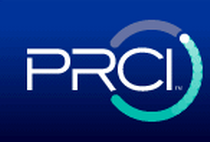July 2013, Vol. 240 No. 7
Features
An Overview Of Recent Gas Measurement Research

In 2004, the Gas Research Institute (GRI) natural gas measurement research program funding mechanism based on transmission pipeline throughput expired. That program provided substantial support, on the order of $40 million over 20 years, for advancing transmission measurement practice. However, the end of this funding mechanism did not spell the end of the industry’s investment progress in gas measurement research.
A large portion of the natural gas measurement research conducted since 2004 has been funded and managed by the Pipeline Research Council International (PRCI). For more than 60 years, PRCI has sponsored applied research addressing essential pipeline integrity and pipeline operating issues under a collaborative research program, and 40 gas, crude oil and refined products pipelines, plus a number of key vendors and service providers comprise its membership.
PRCI has six technical committees that are funded by membership subscription dollars allocated to specific projects by designation of the board of directors of the organization. One of the six technical committees is the Measurement Technical Committee (MTC).
The MTC has been actively conducting research projects in five program areas: Measurement Reliability, Operating and Maintenance Cost Reduction, Industry Standards Support, Measurement Uncertainty and Facility Design, and Gas Quality. The remainder of this article will describe some of the projects that have been completed in the past few years or are in progress.
High Pressure Differential Pressure Calibration – This project evaluated the practice of calibrating differential pressure transmitters at atmospheric pressure and, also, at their operating condition at line pressure. This work was done while Chapter 21.1 of the American Petroleum Institute (API) Manual of Petroleum Measurement Standards (MPMS) entitled “Measurement Using Electronic Metering Systems” was being rewritten, and reinforced certain operating practices related to differential pressure transmitter calibration.
Extended Low Flow Metering – This project evaluated some aspects of operating flow meters at minimal flow rates. This project was needed to evaluate options for extending the operating range of existing installed meters.
Performance of Dirty or Worn Flow Conditioners – The use of flow conditioning plates in gas meter installations has become standard practice over the past 15 or more years. This study considered the impact of abnormal flow conditioners on flow meter performance. Flow conditioning plates were intentionally dirtied or damaged and applied in flow tests at the Southwest Research Institute Metering Research Facility (SwRI MRF).
Liquefied Natural Gas (LNG) Measurement Uncertainty Analysis – This uncertainty analysis project evaluated the process of shipboard on/offloading LNG cargo custody transfer. It described current practices and identified risk factors where bias could potentially be introduced. It also described measurement uncertainties related to LNG terminal inventory management.
Investigate Active Meter Cleaning Concepts – This project considered how companies might be able to clean currently installed gas flow meters in place in the field. Several innovative approaches were considered with varying success rates.
Effects of Liquid Contamination on Ultrasonic Flow Meters – Light oil was injected upstream of gas ultrasonic flow meters to simulate compressor oil or other contamination of the flow stream in order to estimate bias errors that might be produced. Additional tests were deemed to be necessary prior to releasing any of the results publicly. These tests are planned for later this year.
Effect of Upstream Piping Configurations on Ultrasonic Meter Bias – This project considered how certain inlet piping configurations commonly found in ultrasonic meter installations might introduce error by producing flow stream distortions sufficient to overcome the proper function of the flow conditioner.
Effects of Methanol Injection on Gas Measurement – Methanol may be injected into the gas flow stream to prevent hydrate formation inside the pipe. The effect of the methanol addition to the gas was evaluated from a theoretical basis. A follow-up study evaluated the impact of methanol on gas chromatographic analysis.
Gas Sampling under Supercritical Conditions – This study considered the challenges of taking gas samples at supercritical conditions. The report suggested what follow-on research might be attempted to better understand how best to minimize errors during supercritical sampling.
Testing of Gas Sampling Methods at Hydrocarbon Dew Point Conditions – A test of four commonly applied gas sampling methods was conducted at field sites with operations at gas stream temperatures near the hydrocarbon dew point temperature. The sampling results were compared to analyses of the gas flows during the same time that the samples were taken.
The following projects are on-going:
Compact Ultrasonic Meter Installations – This project is evaluating the ability of new ultrasonic meter designs to measure accurately when installed with minimal piping dimensions similar to those described in American Gas Association (AGA) Report 7 entitled “Measurement of Natural Gas by Turbine Meters.” This project is being conducted at the SwRI MRF.
Multipath Ultrasonic Meter Accuracy Effects with Pressure and Temperature Variations from Initial Calibration – This project is evaluating ultrasonic meter performance changes as a function of operating line pressures and temperatures that are significantly different than original flow calibration conditions.
Thermal Radiation Effects on Ultrasonic Meter Flow Measurement at Low Flow Conditions – This project, being conducted at the SwRI MRF, considers the benefits of shading ultrasonic meter runs from solar irradiance. It is focused on characterizing whether bias is created at low flow rates.
When approved by the PRCI Measurement Technical Committee, the research results typically are released to the public. Research reports and papers may be ordered by visiting the PRCI website at www.PRCI.org. Southwest Research Institute is under contract in several instances to conduct this research and is a non-profit research organization that seeks to benefit government, industry, and the public through innovative science and technology.





Comments